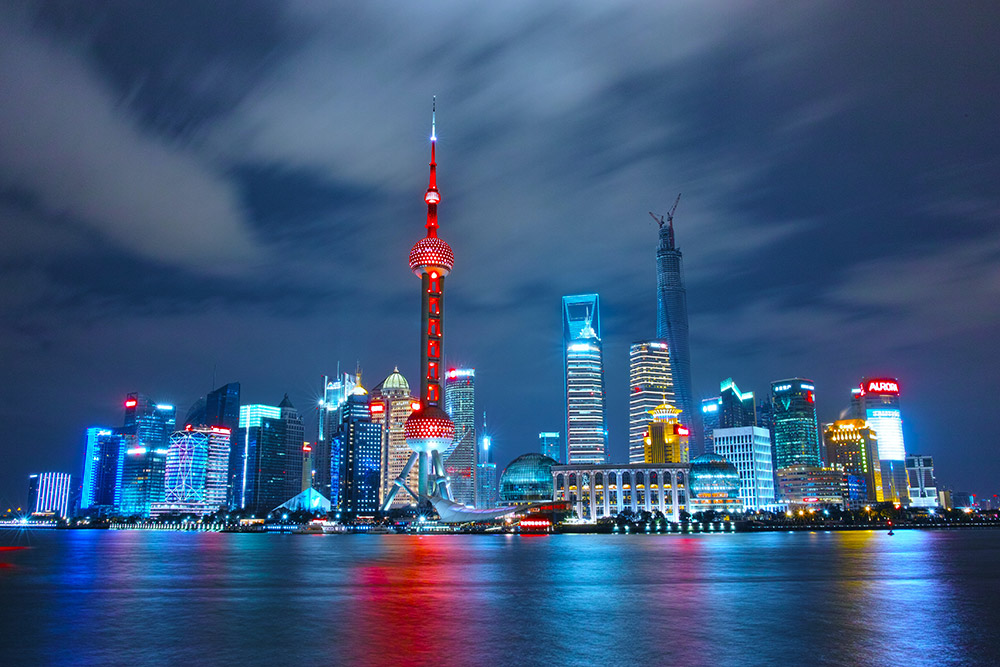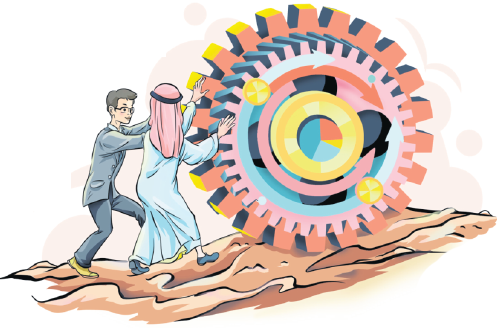
As China is gradually reaching the center of the world stage, more area studies knowledge and professionals who are experts in foreign languages, countries and cultures are needed to serve the development of national strategies.
Institutes and scholars are dedicated to achieving this goal. One of them is the Shanghai Global Governance & Area Studies Building at the Songjiang campus of the Shanghai International Studies University (SISU), where Chinese and foreign teachers and students will gather to explore and discuss how to develop area studies a year later.
"Only by cultivating outstanding area studies talent and improving the area studies disciplines can we provide strong personnel and intellectual support for the country to achieve the goal of human peace," said Jiang Feng, Party secretary of SISU.
Analyze a country from a humanistic, historical perspective
Andrea Mao, executive deputy director of the Office of International Cooperation and Exchange of SISU, believed that area studies, as an interdisciplinary subject, is a trend on a global scale.
"It refers to whether major research topics can be solved by a single disciplinary field. In the political discourse system, for example, climate change is not a topic that can be solved by a single country. It is a global issue that requires many countries to come together, so the Paris Agreement was established. There is also the Kyoto Protocol. The current emphasis on interdisciplinary studies has led to the formation of area studies.
"For instance, in the EU's energy policy, you can't just study where energy comes from, or merely energy technology. Energy is a social issue and cost issue. It also includes legislation, so it's a very comprehensive issue.
"When we realize what Europe is like and what Germany is like, they're also talking about enhancing their China capabilities. In fact, we're also talking about enhancing our Europe capabilities, but it is very comprehensive.
"The political sphere often has a superficial understanding of other countries. However, we attempt to deeply analyze these countries or regions from a humanistic, geographical and historic perspective, and then solve some practical problems.
"Behind practical problems, there are many historic origins. These could include ideological and philosophical aspects.
"How can we explore with the perspective of Sino-foreign interaction? How can we seek truth? To be honest, humanities and social sciences are also a process of seeking truth."
Acknowledge differences, respect cultural diversity
Yang Cheng, executive dean of the Shanghai Academy of Global Governance & Area Studies, pointed out: "Area studies provide people with a more objective, rational and profound understanding of the external world. That understanding can extend beyond the concept of a nation or state, and combine our own interests with the common interests of all humanity.
"To build a community with a shared future for mankind, the first prerequisite is to acknowledge difference. That is to say, there may be significant differences among different civilizations, cultures and even customs.
"We first acknowledge differences, respect the diversity of civilization, and diversity of culture. Then, we consider the diversity of interests under this premise, and strive to form a pattern where everyone is for everyone, contributing cooperation and dialogue.
"It's the different words of mutual learning among civilizations, the dialogue among civilizations, and so on that have proposed this global initiative.
"We do not recognize the distinction between so-called 'advanced' and 'backward' civilizations. We emphasize the equality of countries, regardless of size or type of civilization.
"In terms of equality, we need to promote planning. Therefore, the deeper and more solid our knowledge of regional countries, the more conducive it may be to promoting the construction of a community with a shared future for mankind.
"At the same time, we can never simply divide things in this world into two, saying either 'China or the West,' or 'the West or the East'."
A more comprehensive observation
Hu Chunchun, a professor in Germen studies, stressed that we need to not only learn basic knowledge from various disciplines, but also study the reality that has occurred in the interaction between European countries and the world with China.
"We hope that our students will have a relatively broad perspective, which means they will not only focus on their own interests, but also an academic concept that is completely objective. The concerns of this society can be combined, which is the goal we hope to achieve in cultivating talent.
He explained that before the establishment of the predecessor of Peking University, Imperial University of Peking, Tongwenguan (Chinese: "Interpreters College"), or School of Combined Learning, had already been there. Among the first batch of subjects at that time, German was taught by foreign teachers, which means research on the language already started ages ago.
"So what we are thinking about now is whether we can make this fragmented knowledge into a whole. This is a path that we want to take from the perspective of microcosm and the discipline development of talent.
"That is to say, unlike the past, you learned German here and the history of Germany there, but now let's see if we can form a more comprehensive observation together."
Every individual can make a difference
Dominik Pietzcker, a visiting professor with the academy, noted that what many European publications, such as the Economist, report on China does not match entirely the reality that he sees here.
"It seems that there is a misconception, politically, economically and culturally in the West, versus the reality in China. I mean, you have to stay here longer to perceive that.
"Europeans going to China or Chinese going to Europe, spending some months or a study year there is highly advisable.
"If you try to make a personal difference or enrich your personal intellect and cultural life by actually going there, meeting the people and talking to them, trying to understand their point of view, and the reasons why they behave in a very specific way, that makes a difference.
"To give solutions to the current situation, and in particular, the misunderstanding, I think it is the most important issue nowadays for both sides. As what we read in the newpapers is very much on a political level, but every individual can make a difference. All you have to do is book a flight and see for yourself.
"I mean, that is true for Europeans or people from the West coming to China, but of course also for Chinese people going to the West. The pandemic is over and the frontiers are open, so it's structurally not a problem again."









![Olympic village [Photo provided to Beijing Daily]](http://sisu.cdn.1fenda.com/sites/default/files/2022-10/Olympic%20village.jpg)

